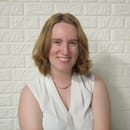In the fall of 1969, a rumor that Paul McCartney of The Beatles was dead gripped the Beatles’ fanbase. The foundation of this rumor was that Paul McCartney had died in an automobile accident in 1966. Because The Beatles were at the height of their fame, they had replaced McCartney with a lookalike, William Campbell. In the years following 1966, The Beatles became increasingly guilty about what they had done, so they started to put clues in their music, hoping that fans would realize that Paul was actually dead. People from all over the world began to look for clues within Beatles albums that would prove that Paul McCartney was indeed dead. These rumors spiraled into a full-blown conspiracy much to the dislike of McCartney. Fans everywhere found clues in albums, songs, and images that they believed were planted there by The Beatles to hint to fans that Paul McCartney really was dead. While there may not be much truth to the rumor, it provides insight into the culture of the late sixties.
The origin of the Paul-is-Dead rumor is somewhat unclear. There is no official documentation as to how or where it started. The beginning reports of McCartney’s death can, however, be traced to the American Midwest. The first time the public became aware of this rumor was on October 12, 1969. A disk jockey for WKNR-FM radio station, Russ Gibb, received a call from a man named Tom. Tom, who claimed to be a student at Eastern Michigan University told Gibb that if he played The Beatles’ “Revolution 9” backward, he would hear a hidden clue alluding to Paul McCartney’s death. Within seconds, Gibb had a copy of The White Album in hands. He followed the instructions given by Tom and played the beginning of “Revolution 9” backward. Gibb was shocked by what he heard. He could clearly make out the words “turn me on, dead man…turn me on, dead man…turn me on, dead man…” While still in the middle of his radio show, and on the phone with Tom, another young man walked into the studio, interrupting Gibb. This man brought with him a Magical Mystery Tour album, intending to present more clues about the death of Paul McCartney to Gibb. He had been listening to Gibb’s radio show and wanted to contribute more to this rumor. He claimed that at the end of the song “Strawberry Fields Forever”, the listener can hear John Lennon saying, “I buried Paul.” This radio show sparked intense interest throughout the rest of the United States and thrust Gibb deeper into the rabbit hole of the rumor.
Fred LaBour, a student at the University of Michigan, heard the radio broadcast from WKRN as he was driving to visit relatives. He was immediately drawn to the Paul-is-Dead rumor and took it upon himself to contribute to the cause. LaBour had been assigned to write a record review for the school newspaper and was not entirely sure what he was going to write about. When he heard Gibb’s radio show, he knew that he could bring a unique angle to his upcoming record review: the Paul-is-Dead rumor. In the following days, LaBour found himself being consumed by the possibility of clues leading to proof of McCartney’s death. He closely examined Beatles albums from 1966 onward, searching for anything that could even hint at McCartney’s death. Shortly after his sleuthing commenced, LaBour turned in his record review on the Abbey Road album, which went on to be published in The Michigan Daily. The newspaper sold out on the day that it was issued, with the headline “McCartney dead; new evidence brought to light.” Students all over campus were now reading about the clues that proved the death of Paul McCartney.



